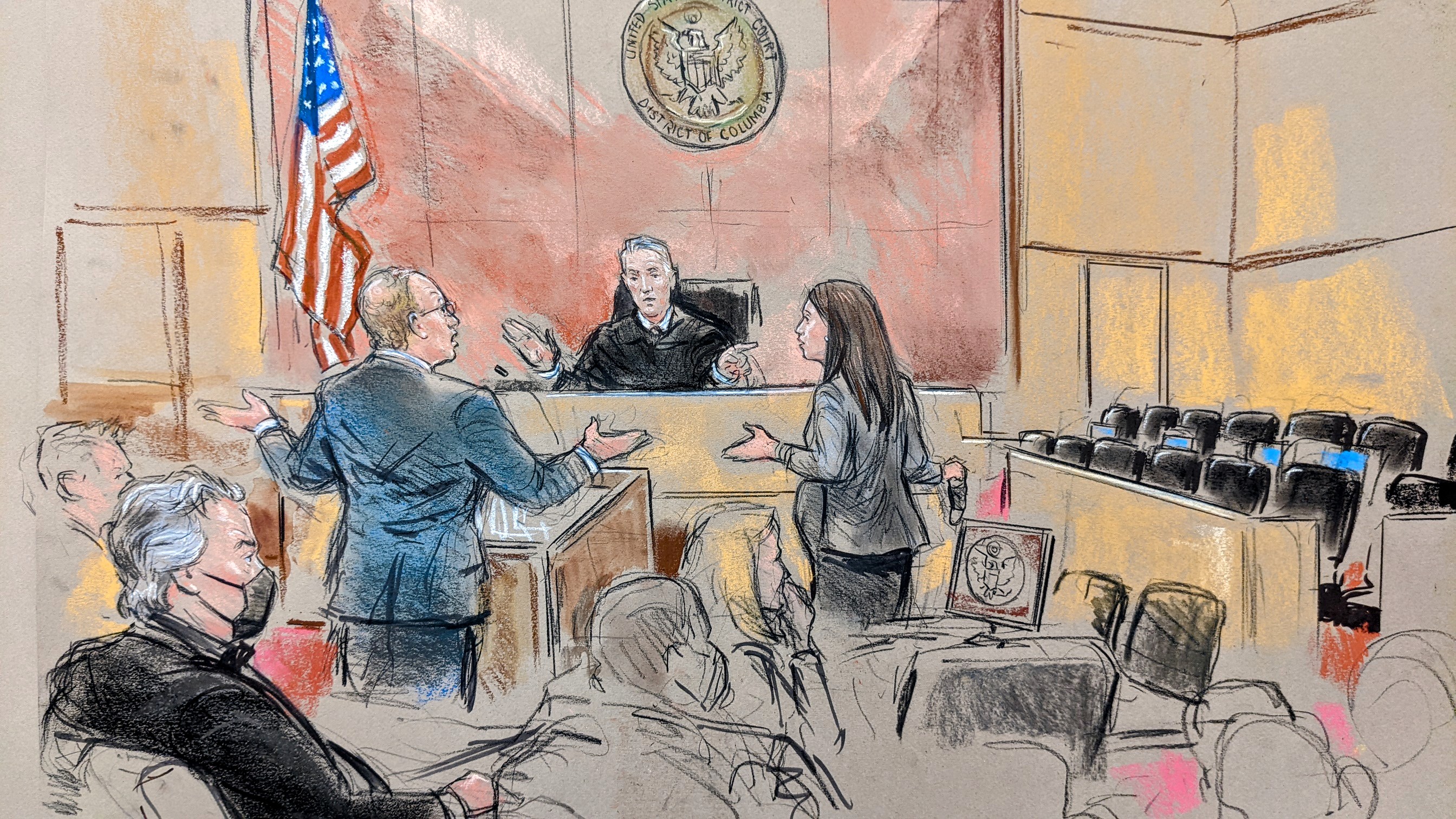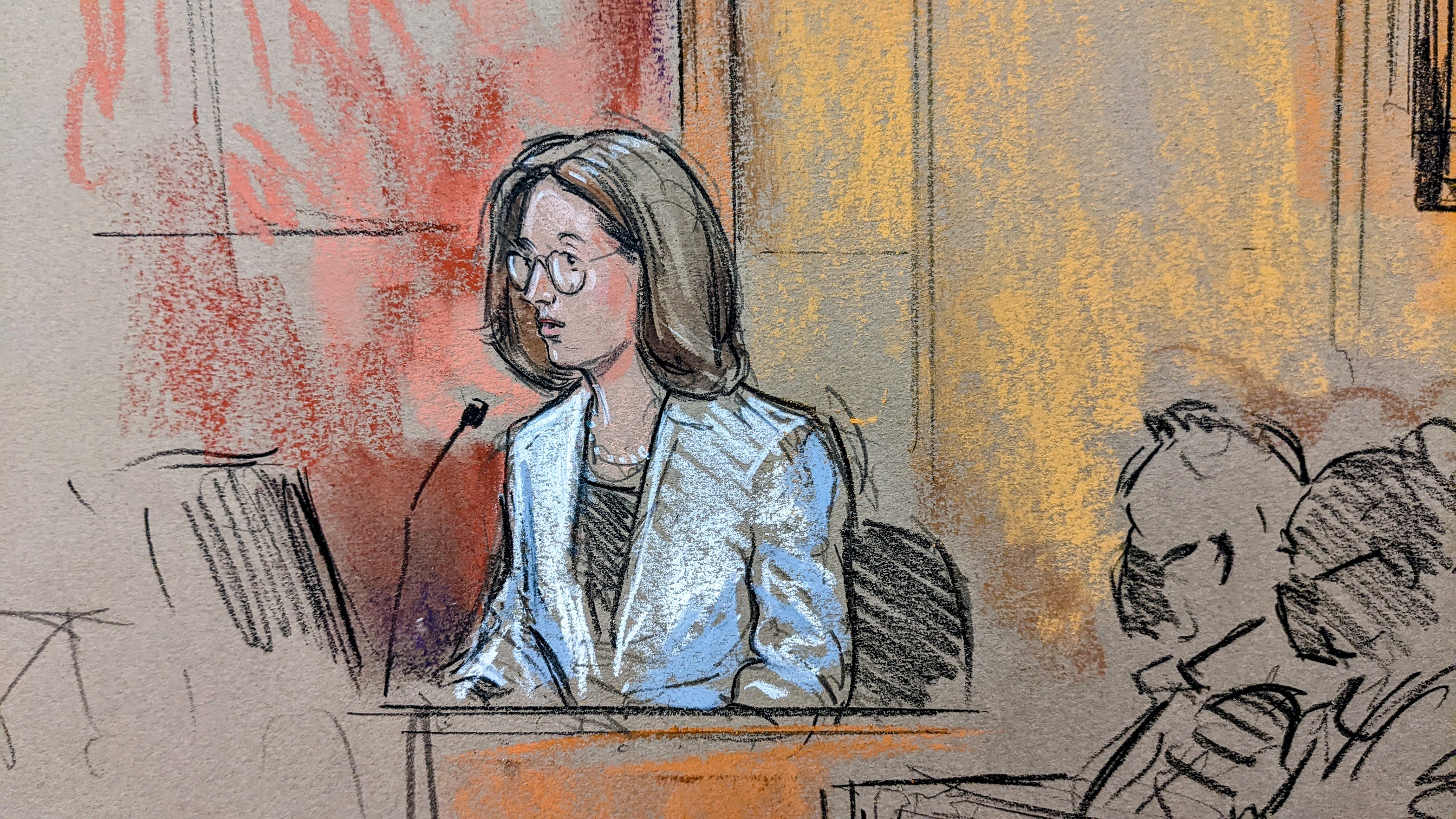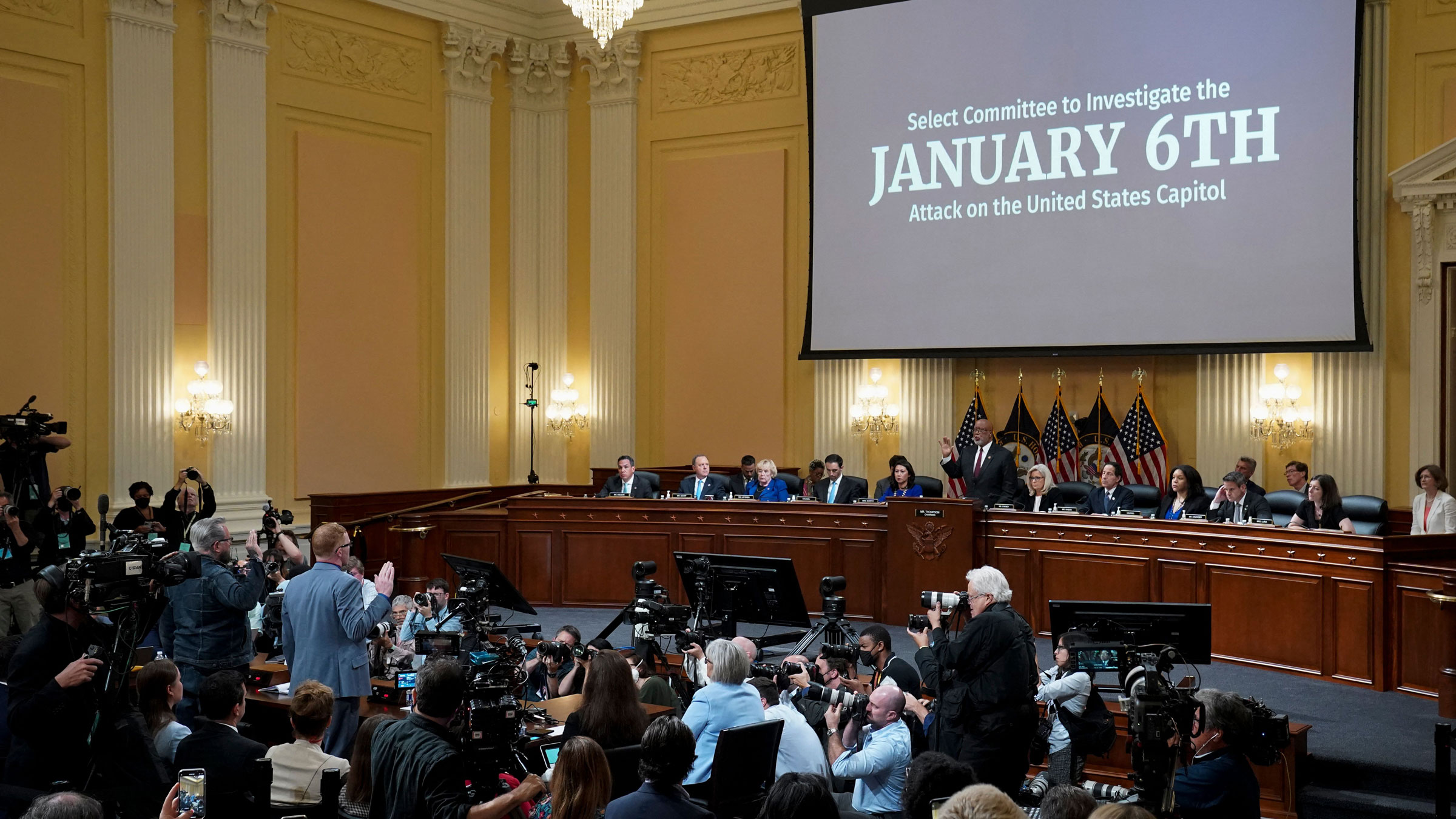
Steve Bannon, an aide to former President Donald Trump, is on trial on contempt of Congress charges for failing to comply with subpoenas from the House committee investigating the insurrection.
Here are the key moments from the first day of his trial:
- Prosecutor tells the jury Bannon "chose to show his contempt for Congress’ authority and its processes": In her opening statement, Justice Department prosecutor Amanda Vaughn told the jury that Bannon “prevented the government from getting the important information it needed from him." She said, "Congress needed to know what the defendant knew about the events of Jan 6, 2021," while describing the subpoena as a “legally enforceable order.” Vaughn added, "Because it was a subpoena, Congress was entitled to the information it sought. It wasn't optional. It wasn't a request. It wasn't an invitation. It was mandatory,” she said. By ignoring Congress’ orders for testimony, even after the House rejected his reasons for not cooperating, Bannon “prevented the government from getting the important information it needed from him,” Vaughn said. She said that the jury will see how Bannon “chose to show his contempt for Congress’ authority and its processes.”
- Prosecutor: This case is about Bannon "thumbing his nose" at government process: As prosecutor Vaughn finished up the government's opening statement, she distilled what the prosecution thinks this case is about: "This case is about the defendant thumbing his nose at the orderly process of our government." Vaughn recounted the warnings Bannon received from the committee as the subpoena deadlines approached and how the committee rejected the arguments he had put forward for not cooperating. "This is not a case of mistake,” Vaughn said. “The defendant didn't get the date wrong. He didn't get confused on where to go. He didn't get stuck on a broken down metro car. He just refused to follow the rules."
- Bannon’s lawyer tells jury "he's innocent of these charges": Evan Corcoran, Bannon's lawyer, began the defense’s opening statement by telling the jury that Bannon is “innocent of these charges." He briefly outlined Bannon’s biography, including his time in the Navy and the career he’s had in media. "He was a political thinker and a political strategist, and he helped a candidate run for the presidency,” Corcoran said, while touting Bannon as a top adviser to former President Trump. Corcoran noted the success of Bannon’s podcast (a term Corcoran defined for the jury as when “the word iPod and broadcast are put together") and said that the day before the attack on Capitol, most shows were reporting that there might be violence at the Capitol the next day. Corcoran then turned to the subpoena, which he noted was issued eight months later.
- Defense: Evidence will show that there "was no ignoring the subpoena": As he continued his opening statement, Corcoran previewed a defense that would claim that there “was no ignoring the subpoena.” Corcoran went through the timeline around the subpoena, but not without a brief detour into a discussion of the role politics was playing. "Politics is the lifeblood of the US House of Representatives," he said, while asserting that politics also affect staff members in Congress. Turning back to the subpoena, Corcoran noted the communications between the select committee's chief counsel, Kristin Amerling, and Bannon's lawyer Robert Costello. “The evidence is going to show there is direct engagement” between the committee staff member and Bannon’s attorney, Corcoran said. "There was no ignoring the subpoena. There will be no evidence showing that."
- DOJ questions first witness, Jan. 6 committee staffer, about the purpose of House panel: Prosecutor Vaughn asked the first witness, House committee staffer Kristin Amerling, about the purpose of the House Jan. 6 committee and how committees function as a part of Congress. After several basic questions about how Congress is set up and how it uses committees in the process to craft laws, Vaughn’s questions turned to the specific objectives of the House Jan. 6 Committee itself. “The committee is tasked with providing the public a complete account of what happened on that day, why it happened and it is also tasked with evaluating recommendations on laws, regulations, rules policies that will help make sure something like that never happens again,” Amerling testified.
- House staffer testifies about the time crunch facing the Jan. 6 committee: Amid questions about how the House Jan. 6 committee works and the mechanics of its subpoenas, the Department of Justice asked House staffer Amerling to elaborate on the time crunch the committee is facing. In answers to questions about when the committee launched and when it will expire, Amerling testified that it only has about a year and half to do its work. Amerling said that there is an “urgency” to the committee’s work, given its focus on a violent assault on the US Capitol and law enforcement. "We have a limited amount of time to gather information,” Amerling said, while noting that “the threat to our democratic institutions continues."

